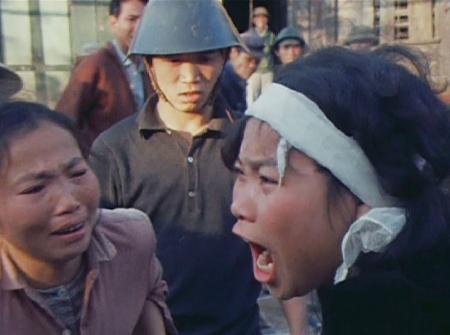The Vietnam War: Unpacking the Reality of North Vietnam
The Vietnam War remains a deeply complex and often misunderstood conflict. While the Western perspective often dominates narratives, understanding the realities faced by North Vietnam is crucial for a complete picture. This article delves into the experiences, motivations, and strategies of the North Vietnamese, providing a nuanced perspective on their role in this pivotal historical event.
The North Vietnamese Perspective: A Fight for Self-Determination
The narrative often portrays North Vietnam as a monolithic communist entity, but the reality was far more intricate. For North Vietnamese citizens, the war was primarily a fight for national independence and self-determination against foreign intervention – first against French colonialism and later against American involvement. This fundamental desire for sovereignty fueled their resilience and unwavering commitment throughout the decades-long conflict.
The Legacy of French Colonialism: A Foundation for Resistance
France's colonial rule in Indochina left a deep scar on the Vietnamese people, fostering resentment and resistance. The First Indochina War (1946-1954) cemented this anti-colonial sentiment, shaping the North Vietnamese perspective on the subsequent conflict with the United States. The Geneva Accords of 1954, while intended to partition Vietnam temporarily, became a catalyst for further conflict, with the North viewing the division as an imposed obstacle to reunification.
Ho Chi Minh and the North Vietnamese Ideology: Beyond Simple Communism
While Ho Chi Minh's leadership was undeniably communist, his ideology resonated deeply with nationalist sentiments. His appeals to national unity and self-reliance were powerful tools in galvanizing support across the diverse populace of North Vietnam. Understanding Ho Chi Minh's complex motivations, beyond simplistic communist labels, is key to understanding the North Vietnamese perspective.
The War Effort: Strategy, Resilience, and Sacrifice
North Vietnam's military strategy was characterized by its resilience and adaptability. They employed guerrilla warfare tactics effectively, leveraging their knowledge of the terrain and the unwavering support of the civilian population.
Guerrilla Warfare and the Ho Chi Minh Trail: A Strategic Masterclass
The Ho Chi Minh Trail, a network of jungle paths supplying the Viet Cong in the South, exemplifies the strategic ingenuity of the North Vietnamese. This intricate logistical network allowed for the continuous flow of supplies and manpower, defying American attempts at interdiction. Learning about the trail's development and impact is crucial to understanding the war's dynamics.
The Role of the Civilian Population: A Unified Front
The North Vietnamese war effort relied heavily on the unwavering support of the civilian population. Civilians provided intelligence, supplies, and even directly participated in combat. This unified front, built upon a shared sense of national purpose, was a significant factor in North Vietnam's eventual victory.
The Human Cost: Untold Suffering and Resilience
It's crucial to acknowledge the immense human cost endured by the North Vietnamese people. The war brought widespread destruction, displacement, and immense suffering. Understanding the sacrifices made by ordinary North Vietnamese citizens is essential for a complete understanding of the conflict.
The Aftermath and Legacy: Rebuilding and Reunification
After the war's conclusion, North Vietnam faced the monumental task of rebuilding a war-torn nation. The reunification of Vietnam in 1975 marked a significant turning point, but the challenges of integrating two vastly different systems remained substantial. The long-term effects of the war, both positive and negative, continue to shape Vietnam today.
Conclusion: A More Complete Understanding
Understanding the North Vietnamese experience during the Vietnam War necessitates moving beyond simplistic narratives and exploring the complexities of their motivations, strategies, and sacrifices. By considering their perspective, we can gain a more accurate and nuanced appreciation of this pivotal historical event. Further research into primary sources and academic studies is encouraged for a more comprehensive understanding.
Keywords: Vietnam War, North Vietnam, Ho Chi Minh, Ho Chi Minh Trail, Viet Cong, Guerrilla Warfare, Vietnam War History, Cold War, Southeast Asia, Nationalism, Communism, Geneva Accords, Reunification of Vietnam.
